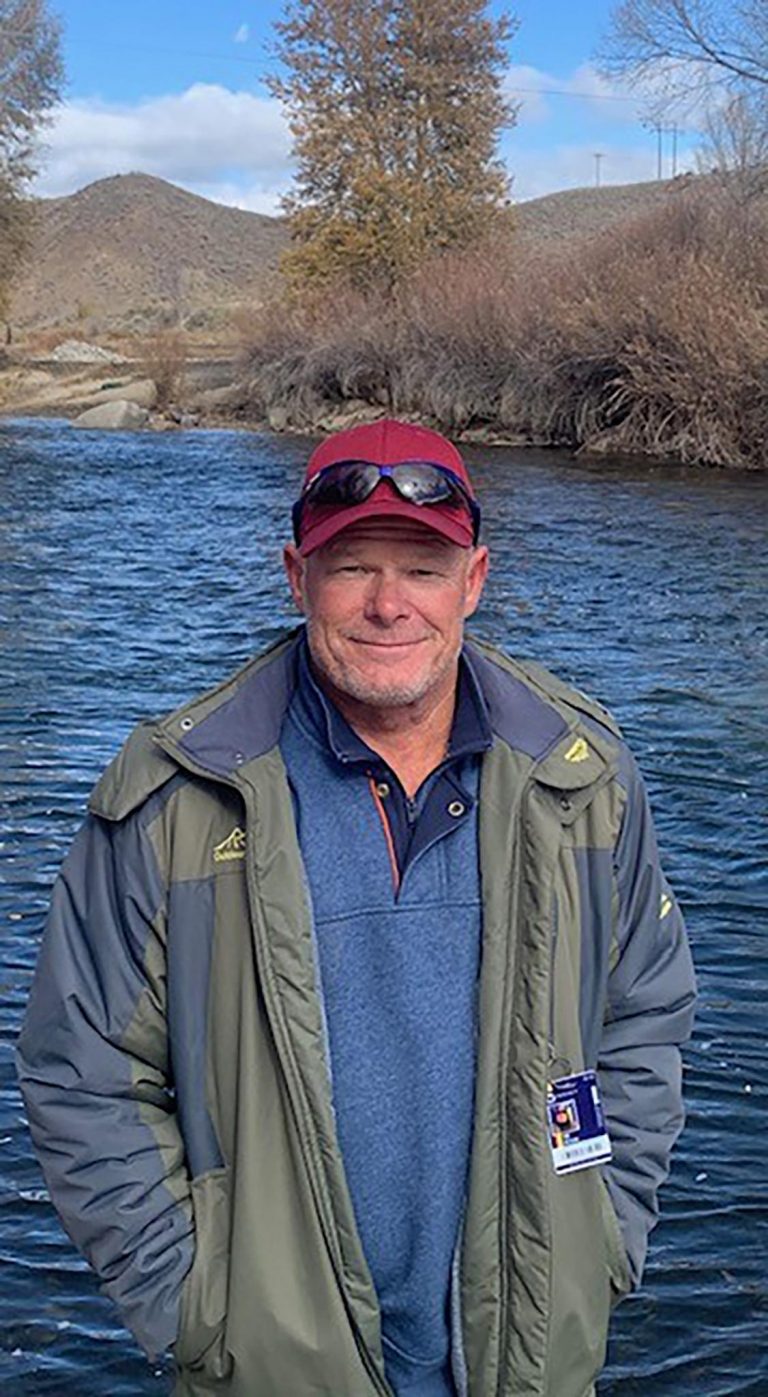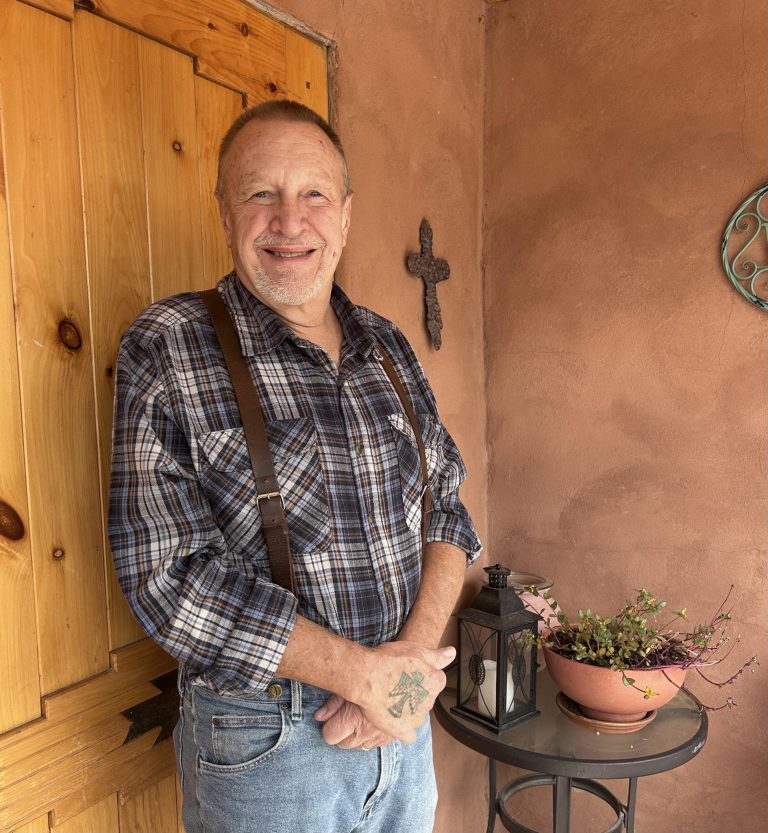T’Naus Nieto
The Chronicle-News
Tim Peters is running for City Council and hopes to see changes and adjustments to municipal leadership, particularly in the conditions of public spaces and less favorable business fees and codes.
He’s a 40-year building contractor, with more than half of those years, 23, being right here in Trinidad after deciding this was the place he wanted to call home.
“I absolutely love this community,” Peters said when asked if he had a message for the community. “I love all my friends that live here, I love the lakes and rivers, I love no traffic, and I believe with my skillset and my experience, I can provide a positive benefit to the city. All I want to do is serve the city—and this time it’s going to be on the city council.”
Peters decided to run for City Council after growing increasingly concerned with what he believed was the worsening deterioration of communal and public spaces, with the public’s concerns being ignored.
“I want Trinidad to be all that it can be,” he said. “In recent years, I have been disheartened by the state of our roads, which has had a negative impact on our quality of life, safety, and property values. Our parks and rivers have become disgusting trash dumb sites, with trash, feces, and needles all over. I feel like our elected officials don’t listen to our citizens when input is provided, it falls on deaf ears.”
“I’d like to be part of the solution that drives Trinidad to be its best, and I think I have the skill sets and experience that can be useful.”
When asked why he thought people should vote for him, he responded, “I have forty years in the construction industry, designing, budgeting, and building custom homes, which entails problem-solving on a daily basis, making adjustments on the fly, staying on budget, and resolving conflicts when they arise. I believe in open and honest communication, with both my customers and subcontractors, so there [will be] no surprises.”
Trinidad’s unhoused population has been a focal point of contentious controversy, particularly within City Hall, as officials grapple with passionate opposing viewpoints from the community and are reasonably forced to make difficult decisions.
When asked about his views on the unhoused, Peters said, “I empathize with the situation in which this community finds itself. I believe this is something that’s being felt around the country, and there are no easy answers. I don’t think there’s one size that fits all. People are homeless for very different reasons. For those who want help, I think we should make an effort to provide them with the help they need and want. We don’t have the resources the big cities have and likely won’t receive any significant amount in the short term. We should help people get the help they need, whether it’s returning to family or whether it’s resources for drug and mental health issues. And again, we do not have the resources here. My main focus is to serve the taxpayers in this community by providing a safe, clean, and welcoming environment.”
Peters continued, “Families and children should have a safe place to gather and play. What is not acceptable is for our parks and rivers to be trash dump sites, a spot to do drugs, and leave used needles around. We would not accept that behavior from any other group, and we should not accept that from the unhoused community. We all must respect our common spaces and abide by the ordinances that are in place.”
Trinidad’s economic future is another topic that consistently arises, with the industrial drivers at the center of debate.
When asked about his views on Trinidad’s economic future, Peters said:
“Our success will be based on how clean, safe, and attractive we keep our town. We need more pride in our town. I feel like we could do better. If I were a business owner seeking to relocate to Trinidad, the first thing I’d look for is to see how safe, clean, and attractive a town is. I believe we are reliant on multiple pieces of the puzzle coming together from all sides. We need to continue attracting outside events and market our outdoor recreational opportunities, for sure. I believe in the decades to come, cycling and tourism can provide a major positive economic impact to our community because of our geological location in the mountains, Fisher’s Peak, the lake, I believe we’re in a golden position to take advantage of the opportunity to offer world-class cycling.”
Continuing, he said, “No [single] business is going to save us. No big Amazon centers are coming in, and we don’t need them, and we can’t handle it. But multiple small businesses will equal one large business. Also, I don’t feel like the City of Trinidad is a very business-friendly place—that needs to change.”
“We also must realize that we need willing and skilled manpower that will support small businesses that are willing to come. We need to be willing to offer incentives for business when it makes good financial sense. I feel like instead of helping businesses to succeed, the city tends to punish creators.”
When asked if he could elaborate or provide an example on how Trinidad is not a “business-friendly” place, he said:
“Let’s just say I’m going to build a house for you and we’re going to submit your plans to the city. They’re going to say, ‘You need to do sidewalks, curb and gutter on everything,’ even though right next door to you, it’s City property, and they don’t have to do it. Housing is so expensive already, with all the fees, rules and regulations. General contractors are not in charge of everything. We follow rules, regulations, we [have] to pay all the fees, and it makes housing almost unaffordable right now. They think they can tack on $10,000 to $15,000 in fees, and that makes it tough on people.
“I believe if you come up with an idea, to create, build something, to rehab something, one of our old buildings into a pizza place or restaurant, they (the city) should bend over backwards to help you. There’s an attitude in the city that if you have enough money to do a job, you have enough money to do something else. For example, if you’re rich enough to afford to build a house, what’s another $15,000? That attitude is wrong. We’re all trying to scramble to get into our houses and afford things.”
“There are a few pieces of the puzzle that need to be corrected. I think our parks, rivers, and walkways are one of the most important aspects we have. Because if a tourist comes here and sees what we saw earlier this spring, down on the river and along the riverwalk, no tourists would ever come back to this town. If I had shown up 23 years ago and seen what I saw earlier this year, I would’ve never come back to this town either. That’s why I keep saying, safe, clean and attractive is going to be the catalyst for our economic future.”




